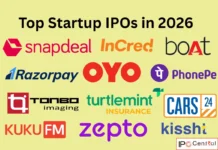Last Updated on March 10, 2025 by Mahesh Yadav
Introduction – Freedom 251 Scam
In 2016, India saw the launch of the Freedom 251 phone, the world’s cheapest smartphone priced at an unbelievable INR 251 (USD 4) by Noida-based company Ringing Bells. It grabbed the attention of millions, promising technology to every Indian. But as they say “if it sounds too good to be true, it probably is”. Freedom 251 scam unfolded a story of deception that left many hurt and looted. This story takes you through the journey of this infamous scam from start to end.

Freedom Phone 251 – Feeding the Hype Machine
The Freedom 251 was touted as a game changer, to bridge the digital divide and bring the internet to millions. It had a 4-inch screen, 1.3 GHz quad-core processor, 1 GB RAM, 8 GB internal storage, and a 3.2 mp camera. The specs seemed unbelievable for the price. Excitement spread across India, especially among the lower-income households who saw it as a rare chance to buy a smartphone that was affordable and had advanced features.
The announcement of Freedom Phone 251 sent shockwaves in the tech world, both the enthusiasts and skeptics were buzzing about how this impossible product could exist. The hype around the phone was immense and Ringing Bells the company behind it claimed they got over 70 million pre-registrations in just a few days of the launch. Not surprisingly their website crashed several times as they couldn’t handle the traffic.
Read Also: All-Time Largest IPOs in India at a Glance
The Red Flags in Freedom 251 Phone Scam
The warning signs were evident from the start. The launch of the Freedom 251 phone faced repeated delays—initially set for February 18, it was pushed to February 19, and then again to February 21. When the event finally occurred, disappointment followed. The prototype revealed wasn’t a groundbreaking new device, but rather a rebranded Chinese smartphone, with the original logo clumsily covered using correction fluid.
The company’s claims of manufacturing the Freedom 251 under the “Make in India” initiative were soon disproved, as no such partnership existed. On top of that, the numbers just didn’t add up. Industry experts estimated that producing a smartphone with the Freedom 251’s specifications would cost at least USD 40, making the promised USD 4 price completely unrealistic.

The Plot Thickens
As investigations began to unfold, it became clear that Ringing Bells had no legitimate means to fulfill its promises. Reports revealed that only a fraction of pre-booked units were ever delivered. Customers who did receive their phones found them to be subpar and not as advertised; many were simply low-cost Chinese models with Ringing Bells branding slapped on them. The payment gateway provider for the Freedom 251 website, PayU, also raised concerns about the company’s credibility and withheld the collected funds.
Legal troubles mounted as multiple complaints surfaced against Goel and his company. Allegations included fraud and misrepresentation, leading to increased scrutiny from law enforcement agencies.
The Great Unraveling
By now conspiracy theories about Ringing Bells and its founder Mohit Goel had taken over the market. As the heat was on they tried to save their reputation by offering refunds for pre-bookings and going cash on delivery for smartphones. But this did little to calm down the authorities and the public. After several delays, Ringing Bells claimed to have shipped the first batch of 5000 units in July 2016 but skepticism remained high. Of the few who got their phones, many reported nonfunctional devices and missing accessories.
To appear committed to his mission of providing a smartphone to every Indian, Mohit Goel even reached out to the government, requesting an investment of INR 50,000 crore for his project. He repeated his earlier claims that economies of scale would help the company break even as more units were delivered. Unsurprisingly, the Government of India showed no interest, and the requested funds never materialized.
The Final Nail in the Coffin of Ringing Bells
The Freedom 251 scam hit its peak in February 2017 when Mohit Goel was arrested on charges of fraud and conspiracy. The company’s assets were seized, and investigations uncovered that Ringing Bells had deceived not only its customers but also its suppliers and employees. Freedom 251 scam amount is believed to be around INR 20 crore (USD 2.8 million).
In the aftermath, several distributors and dealers across India filed lawsuits against the company, leading to Mohit Goel spending six months in jail. Today, people recognize the mistake of trusting a scheme that was clearly ‘too good to be true.’ Ringing Bells has vanished, with its website shut down, and Goel is remembered as a disgraced fraud. Years later, his name resurfaced in a dry fruit scam, leading to another arrest, cementing the fact that the Freedom 251 was a fraudulent scheme from the very beginning.
Read Also: Upcoming IPO Calendar in India
The Aftermath
The repercussions of the Freedom 251 scam have been profound and lasting. It not only raised questions about consumer protection but also highlighted significant gaps in regulatory oversight within India’s tech industry. Many startups faced increased scrutiny as investors and consumers became more cautious about believing seemingly unbelievable offers.
Also this incident taught consumers a big lesson about due diligence and scepticism when deals come which are too good to be true. The aftermath of Freedom 251 has made many people cautious towards new technology offerings – especially those which are claiming unprecedented affordability without any justification.
Conclusion
Freedom 251 is a classic example of the old saying “There’s no such thing as a free lunch”. The allure of the USD 4 smartphone was too tempting for crores of people who were left with nothing but a bad taste in their mouth. The scam is a reminder that in technology world as well as in life if something seems too good to be true, just be sceptical.
Latest Content From IPO Central
- SEBI IPO Approvals This Week
- Top Startups Eyeing IPOs in 2026: 44 in the Pipeline
- Smart Wearables Brand GoBoult Plans IPO by Mid-2027
- Lotte Eyes Indian IPO for Merged Havmor-Lotte Ice Cream Venture
- Top Steel Companies in India
- Top Fundamentally Strong IPOs Available at Up to ~55% Discount
- Is Reliance Industries Undervalued Or Jio and Retail Overvalued?
- Upcoming IPOs in February 2026: Expected ₹24,000 Cr+ Fundraising
- Upcoming PSU IPOs with Shareholder Quota
- Biggest Unlisted Companies in India
- Upcoming Mega IPOs in 2026
































